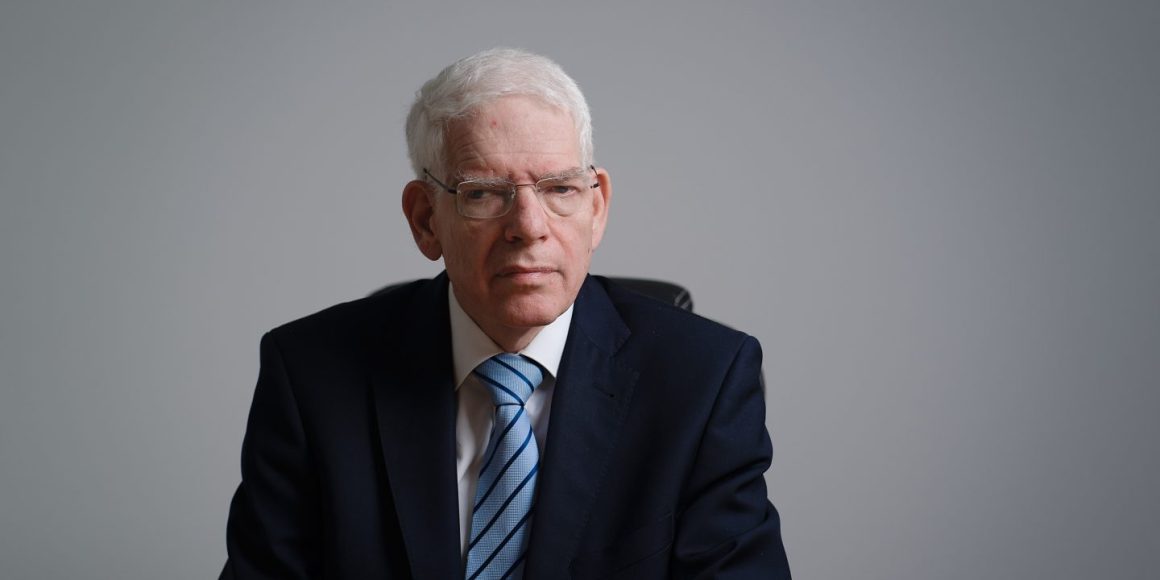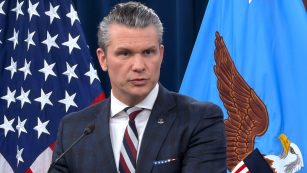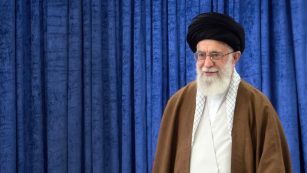The Central Council of Jews in Germany is appalled by the result of the latest county commissioner elections in the federal state of Thuringia. »The first election of an AfD candidate to an executive office shocks me,« Josef Schuster, the President of the Central Council of Jews in Germany, stated.
»To be clear: Not every one of the AfD voters has extreme right-wing views. But the party whose candidate they voted for is an extremist right-wing organization, according to the State Office for the Protection of the Constitution,« Schuster continued. The fact that so many people agreed with this deeply worried him, he said.
watershed People who gave their votes to the AfD in Sonneberg county seriously needed to ask themselves whether the problems they had justifed choosing a candidate from such a party, the Central Council’s President stressed. He called the election result a Watershed which Germany’s democratic politicians and parties could not accept.
Ten years after its founding, the right-wing populist AfD gained a top municipal office in Germany for the first time. In Sonneberg county, which is part of Thuringia, its candidate Robert Sesselmann won the district council election on Sunday.
According to the preliminary results, he received 52.8 percent of the vote in the runoff. This result was announced by the election office. The incumbent district administrator from the center-right CDU, Jürgen Köpper, got only 47.2 percent, even though he was supported by a party alliance. Sesselmann had entered the race as the frontrunner because of his high score in the first round.
Ideas vs. Outrage Thuringia’s Interior Minister and SPD chairman Georg Maier described the election result as an »alarm signal for all democratic forces.« Now it was »time to put party-political interests aside and defend democracy together«. Politics and democracy were competitions for the best ideas and not for the greatest outrage, the SPD politician stated.
The local election in Sonneberg, a county on the border with Bavaria, had attracted nationwide attention. The AfD is currently on the rise in the polls, especially in the eastern German states. In Thuringia, the party led by Björn Höcke is classified as »proven right-wing extremist«. It is being monitored by the Office for the Protection of the Constitution.
The far-left »Die Linke«, the center-left Social Democrats (SPD), the Greens and the liberal Free Democrats (FDP) in Thuringia had campaigned for a high turnout. All of them supported the conservative Christian Democratic candidate (CDU). The turnout was 59.6 percent - up from 49.1 percent in the first round, two weeks ago. The district in the Thuringian Forest, with 57,000 inhabitants and around 48,000 eligible voters, is one of the smallest in Germany.
Federal Policies Sesselmann and the AfD mainly discussed federal issues in the election campaign, such as the controversial heating law, high inflation and the increasing number of refugees in the Federal Republic. In Sonneberg, the election was seen as one about federal policies. Currently, many Germans are dissatisfied with the latter.
To AfD representatives, such as Thuringia’s co-spokesman Stefan Möller, this election had a high priority. To them, it was about proving an electability of their party and setting a precedent. They wanted to show the AfD can assume political responsibility. According to a representative poll by Civey for »Welt« TV, 52 percent of all Germans are troubled by the idea of having a county commissioner who is an AfD member.
Sesselmann is 50 years old, a lawyer and currently a member of the state parliament in Erfurt, the capital of Thuringia. He is from the town of Sonneberg. As head of the district administration, he will mainly have to implement decisions of the district council, but also of the state parliament and the Berlin Bundestag. In addition, his task is to deal with regional issues such as daycare or the renovation of buildings and roads. ja










